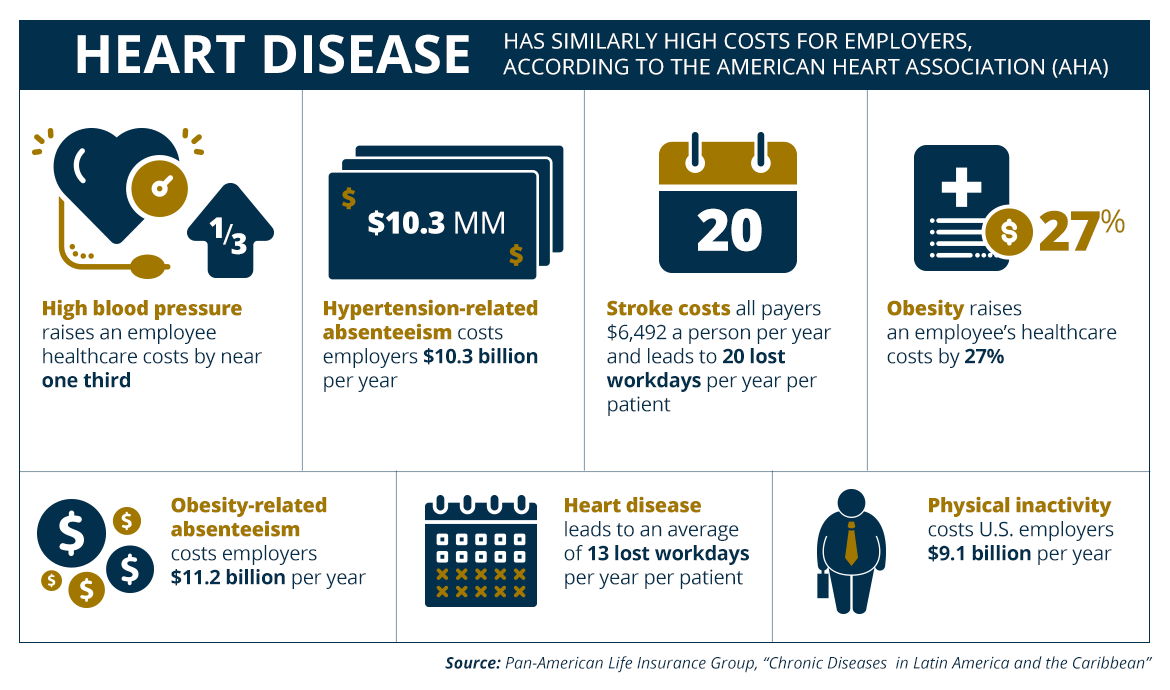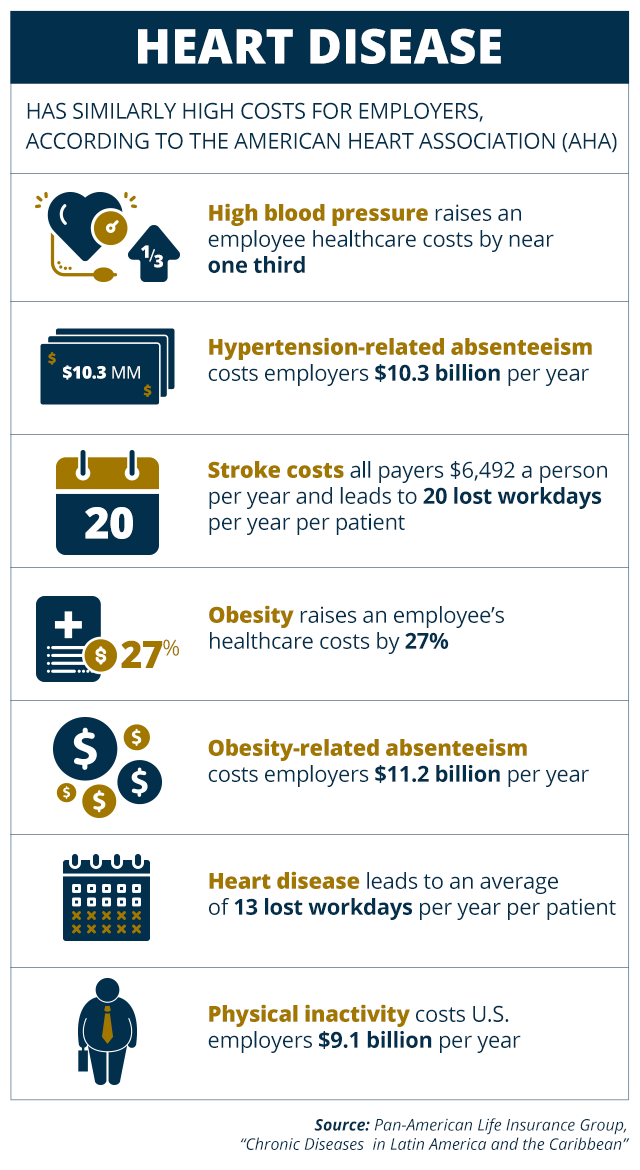4 Feb 2022
How Does Your Diet Affect Your Heart Health?
Estimated reading time: 4 minutes
Our lifelong eating habits, it seems, originate in the womb. Scientific evidence shows that a pregnant mother's diet directly affects an infant's food choices in the future. And throughout a person’s lifetime, as they pass from childhood to adolescence and adulthood, what they eat and drink will shape the habits that may help or harm their cardiovascular health.
Heart health is directly linked to what we eat. Some foods are good for our hearts and others are bad; some should be eliminated from our diets and others should be consumed sparingly. “Heart-friendly” foods can be eaten in generous amounts.
Cardiovascular diseases (CVDs) account for 34% of total deaths in Latin America and the Caribbean. It’s among the top four causes of death, along with diabetes, cancer, and chronic respiratory illnesses — all non-transmissible conditions that are in many cases preventable.
Depending on where they live, a 30-year-old person in Latin America has a 12 to 18% chance of dying before their 70th birthday from one of these four illnesses. Across the region, 17.9 million people die annually from cardiovascular diseases.
CVDs encompass ischemic heart diseases, strokes, cardiomyopathies, and myocarditis. While other conditions also fall under the umbrella of CVDs, these four represent 85% of the category in Latin America and the Caribbean.
In order to prevent and even manage these conditions, our eating habits should be front and center. Eating healthy shouldn’t be something we do to fit into a pair of jeans, but to extend our lives.
Why Nutrition Matters

Food impacts our health in different ways. They are integral to the functioning of the complex machine that is the human body, providing nutrients (proteins, carbohydrates, lipids, vitamins, and water) that enable everything from cellular processes to motor functions.
But eating some of these foods in excess can cause this machine to start breaking down. Products high in saturated and trans fats, for instance, can clog arteries, generate a higher intake of sodium and sugar, and lead to weight gain, some of the principal risk factors for CVDs.
A good diet can help prevent these issues.
In its 2021 dietary guidelines, the American Heart Association (AHA) discusses eating habits for cardiovascular health, providing the following recommendations on foods to include in your diet and foods to avoid.
INCLUDE
- Fruits and vegetables: Evidence backed by scientific research has shown that diets rich in fruits and vegetables (with the exception of white potatoes) are associated with a reduced risk of developing CVDs. Deeply colored fruits and veggies, like leafy greens, tend to be especially nutritionally dense.
- Whole grain foods (whole wheat bread, rice, and pasta; oatmeal; quinoa): Scientific studies have found a correlation between consuming two to three portions of whole grain foods a day and having a lower risk of cardiovascular disease.
- Healthy sources of protein, mostly protein from plants (legumes and nuts), fish and seafood: Dietary patterns containing fish and seafood are consistently associated with a lower risk of CVD. Long- and short-term reviews of studies have concluded that 2 to 3 servings of fish per week are associated with a lower incidence of mortality for all causes of CVD: myocardial infarction, stroke, and heart failure. This is due to the omega-3 fatty acid content of fish and the substitution effect of replacing sources of animal protein (such as fatty red meat or processed meats) with fish and seafood.
Soybeans (including edamame and tofu), beans, lentils, chickpeas, and peas are common types of legumes. These plant foods are not only high in protein, but are also good sources of fiber, according to the American Heart Association. - Plant-based oils: Oils that are derived from plants, including soy, olive, sunflower, and canola oil, can have a positive effect on lipids and lipoproteins in the blood when they replace oils high in saturated fats. Consequently, they can have an impact on heart disease risk.
AVOID
- Beverages and foods with added sugars: The added sugar found in many products, even the most seemingly unlikely ones, is one of the most controversial topics in nutrition and can dramatically raise the risk of heart disease. Medical organizations including the AHA and the UK's Scientific Advisory Committee on Nutrition have signed joint statements demanding that less or no sugar be added to processed foods and calling for efforts to educate people on lowering their intake.
- Ultra-processed foods. These products are the opposite of unprocessed foods, which are in their natural state. They also differ from minimally processed foods, such as canned tuna, which contains added sodium. In general, ultra-processed products are made with substances extracted from other foods, such as fats, starches, added sugars, and hydrogenated fats. They're also more likely to contain added ingredients like sugar, salt, fats, food coloring, or artificial preservatives. Sodas, hot dogs, fast food, cold cuts, and cookies are examples of ultra-processed foods.
- Foods high in salt. Salt consumption is directly proportional to CVD risk: the higher the intake, the greater the likelihood of developing heart disease. Of course, salt is necessary for the human body to function, but as with sugar, many processed foods contain added salt. The US Food and Drug Administration (FDA) has asked the industry to reduce the amount of salt in processed produce.
- So-called “tropical” oils and animal fats: Tropical oils, which include coconut and palm oil, and animal fats, such as butter and lard, contain a higher amount of saturated fats that increase the risk of heart disease.
To strike the right balance, portion size also matters. The AHA suggests adjusting your food intake in order to maintain good heart health and a healthy weight.
Poor cardiovascular health is a heavy burden on countries' public health systems and economies. In Latin America, the cost of treating preventable diseases and work days lost to these conditions amount to multimillion dollar losses. As in other matters of public health, we must make efforts at both the individual and collective level to keep the heartbeats of our societies going.




